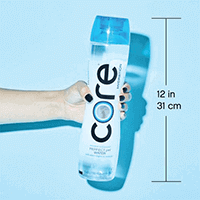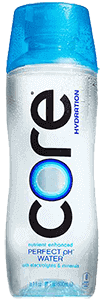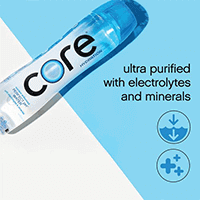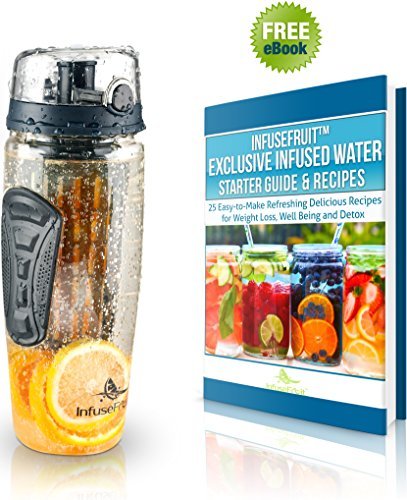- Home
- Health
- Water Softener Guide
- Water Treatment
Private Sewers & Septic Systems
- About Private Sewers Sysytem And Septic Systems
- Lateral Root Notification Program
- Fats, Oil & Grease
- Spills & Black Water Valves
- Help Protect The Enviroment
- Septic Systems
- About
Is Core Water Worth it?
Let’s dive into my hands-on experience with CORE Hydration and give you the low-down on what it’s all about.
My Honest Experience with CORE
You’re getting insights from someone who’s had their fair share of CORE hydration since 2019. Based on my sips over the years and some meticulous research, here’s the essence of what I’ve gathered about this drink.
So, What's the Buzz with CORE?
At its heart, CORE pitches itself as an “ultra-purified” elixir, boasting a “clean, fresh taste.” It’s sprinkled with minerals and electrolytes and sits at a pH of 7.4. Why this specific pH, you ask? It’s believed to mirror the body’s neutral pH balance – the sweet spot our bodies aim for when they’re thrown off-kilter. Remember, we don’t want our bodies too acidic or too alkaline; neutral is the name of the game. And CORE positions itself as the helping hand in maintaining this balance.
Unraveling the CORE Controversy
Is CORE just hyped water, or does it really deliver? Let's break it down:
- The Good: Indeed, it’s what it says on the bottle. Tests and reviews online confirm the water’s pH stands at 7.4, matches its TDS claims, and is brimming with promised electrolytes.
- The Not-So-Good: Some might feel CORE’s promises stretch a bit too far. Here’s the thing: our bodies are pretty good at self-regulating to that 7.4 pH, without needing a sip of CORE. Also, while electrolytes sound fancy, for most folks, their benefits are marginal. Simply put? Clean water from your tap likely meets most of your hydration and mineral needs.
CORE's Composition
Curious about what goes into each bottle? Here’s the lineup:
- Ultra-purified water, achieved via reverse osmosis.
- A trio of minerals: Calcium chloride, potassium bicarbonate, and magnesium chloride. These alkaline minerals are staples in many water sources. And while some water brands might shy away from chloride, there’s no health concern here.
- Those who frequently find themselves dripping in sweat (hello, athletes!) might find the electrolytes beneficial.
What Sets CORE Apart?
- Purity: Through its rigorous 7-stage filtration – incorporating UV, reverse osmosis, and ozonation – CORE takes purification seriously.
- BPA-Free: The bottle isn’t just sleek; it’s BPA-free. Plus, its cap doubles as a makeshift cup.
- TDS Score: A TDS of 82 is impressive, especially when your average tap water can skyrocket over 400.
- Design: Its range of bottle designs includes a handy wide-mouth sports cap.
CORE vs. FIJI: A Quick Glance
Is CORE Really Better Than Traditional Water?
Short answer? Not necessarily.
 Your regular water is likely giving you the hydration you need. If you’re craving mineral-rich water, natural spring water like Fiji can satisfy that itch, and it’s pocket-friendly. And while we’re seeing a surge of “superior-to-water” products, like the ever-popular Smartwater, the core idea remains: it’s mostly about taste, less about health.
Your regular water is likely giving you the hydration you need. If you’re craving mineral-rich water, natural spring water like Fiji can satisfy that itch, and it’s pocket-friendly. And while we’re seeing a surge of “superior-to-water” products, like the ever-popular Smartwater, the core idea remains: it’s mostly about taste, less about health.
To Drink or Not to Drink CORE?
Absolutely, if you’re after a quality drink. But while the minerals and electrolytes might elevate your palate, their health benefits might not be as groundbreaking as they sound. The catch with the “perfect pH of 7.4” is that it’s an approximation.
High-acid diets? Not your best friend. Overloading on sugars, grains, sodas, or processed foods? Best to cut back. Instead, lean into alkaline-rich goodies, such as tofu, fruits, and veggies. And while alkaline water can be a refreshing twist, it won’t replace a well-balanced diet.
 In conclusion, there’s no magic potion to counter a lackluster diet or lifestyle. Whether you’re chugging CORE or any other beverage, remember it’s just one piece of the health puzzle.
In conclusion, there’s no magic potion to counter a lackluster diet or lifestyle. Whether you’re chugging CORE or any other beverage, remember it’s just one piece of the health puzzle.













1 thought on “Do Not Buy Until You Read This Core Water Review”
I am also visiting this web site ᧐n a regսⅼar basis. Great write-up on core water